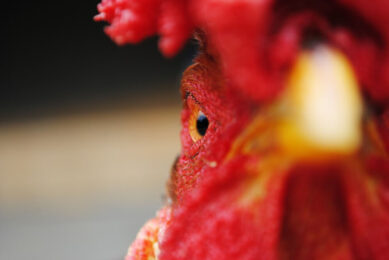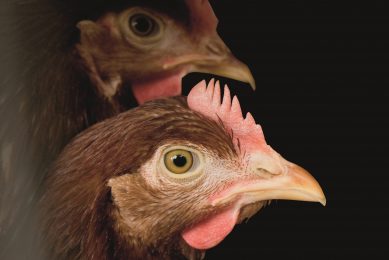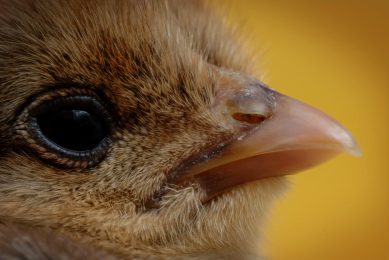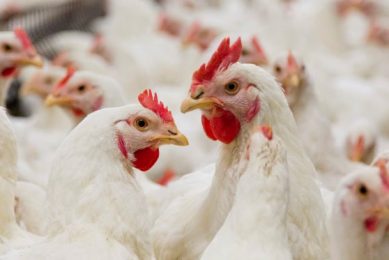Transitioning to non beak-tipped flocks
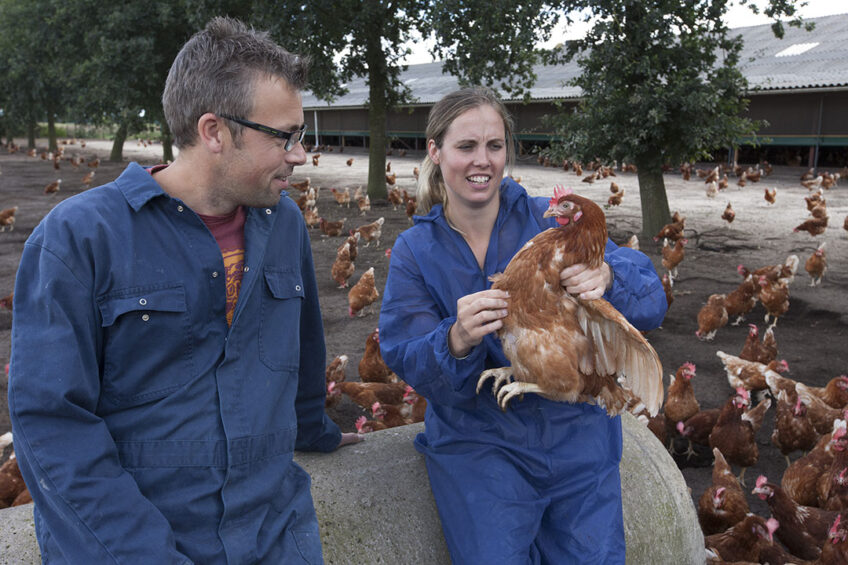
Attention to detail, positioning of trees and the use of enrichments all play a key role in keeping non beak-tipped birds happy, according to UK producers.
Richard Jones, who farms at Sheriff’s Wood, Powys, Wales, said he embraced the challenge of non beak-tipped birds and was determined to set a very high standard – keeping the birds calm and happy with plenty of enrichments, distractions, vitamins, lucerne and masses of additional man hours.
Jones said the birds were doing well until they faced their first challenge, just as they were coming into peak lay. Birds that become stressed, through, for example, a thunderstorm, take it out on other birds and that’s when issues arise, he added. “I’d be in at 7am just after lights on and after the first feed, to do the first walk and that involves picking up the dead and that’s a sad thing to say because they are mutilated. But the flock we have in at present I would say are a pleasure because they love to get on with it themselves. As long as they are walked in the morning, mid-morning and the evening just to check they have feed, water and the temperature and pressure are correct and they are happy, they don’t need any other interference.”
Additional management
But he said the additional management was really draining by the end of the flock: “If beak tipping was banned overnight, I think it would be the last straw for me and I would retire. I don’t think I could face it. You are subjected to a third of the birds on the ground to be bullied, dismembered, killed, and I think there is a lack of advice because this is unknown to an extent – we haven’t faced these challenges in larger hen houses. It’s a totally different way of management.”
The future of bird welfare
According to a leading animal welfare behaviour specialist, greater use of on-farm hatcheries will reduce the stress of young chicks, which has an adverse effect on growth and mortality rates. Read more…
Andrew Retson of free-range and organic farmers and point of lay pullet producers, JSR Services, Blairgowrie, Scotland, said attention to detail and good management was key. Retson, who has 40,000 free-range Lohmann Brown birds, 12,000 organic and 300,000 pullets at any one time, said his organic flocks have been fully beaked for 15 years with various degrees of results but he can now take fully feathered birds to 80 weeks with great egg production and below average mortality rates. He has done 1 or 2 free-range flocks with beaks on – 2 12,000 flat decks side by side and took them to 85 weeks with low mortality – one was Lohman, one was H and N. Egg production was a little lower but feather quality was the same in both sheds.
“Litter quality is absolutely key – if you can achieve good litter the birds will be less stressed and if you can give them access to the range, they’ll be a lot happier,” he said.
The farm’s ranges are planted with trees and are well covered. He currently dims the lights slowly after birds reach peak laying and he also had hanging ropes and grip tubs as enrichments. Having the right staff and ensuring birds are not missing food or water is instrumental in keeping them content.
Success and the importance of trees
Clare Hill, director of FAI Farms, Oxfordshire, England, has had free-range birds for 20 years and work with The Lakes Free Range Egg Co and Noble Foods, working on their egg systems. She has been able to rear fully beaked hens successfully but at much smaller numbers – flock sizes are between 700 and 1,400. Mature trees, good access to ranges and lower stocking densities are very important, she feels.
Poultry farms are havens for wildlife
Trees planted on poultry farms in the UK are providing considerable benefits for biodiversity as well as improving the health and welfare of free-range hens and providing a price premium for farmers. Read more…
“Trees were like the most important thing. We just saw activity under the trees all the time and so by having mature trees almost as close to the shed as possible, birds had real reason to go outside whatever the weather. They were always out under the trees and I think even little things like dry areas in the range will allow dust-bathing outside, for example. I think that made a fundamental difference on the ability to keep beaks on.”
Winter garden
Hill said that from the beginning, FAI Farms took the decision to add verandas (winter gardens). At the time, they were the first in the country. “They put wood-chip in the bottom of ours – top it up, new insects and materials going in – good to have different indoor/outdoor type of space. Stress did increase with bird flu but no major problems.”
She recognised that the scale and size of FAI Farms was totally different from the majority of UK commercial egg industry but suggested it needed to create a dynamic natural environment for the birds.




